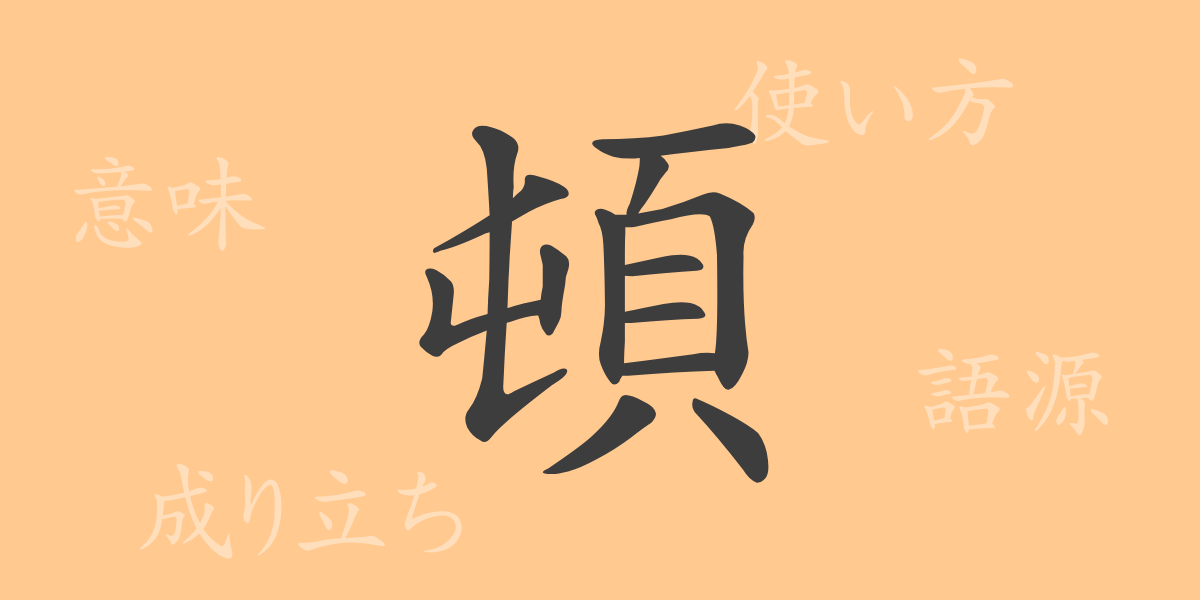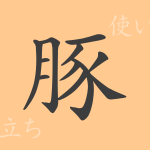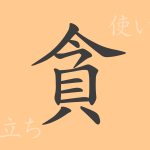The beauty of the Japanese language is enhanced by its complex and rich character system. Kanji, as a central element, offers a profound insight into the depths of language and cultural background. This article focuses on the commonly used Kanji ‘頓 (とん)’, exploring its origins, meanings, usage, and the idioms and proverbs in which it is frequently used.
Origins of ‘頓 (とん)’
The Kanji ‘頓’ traces back to ancient Chinese pictographs, originally depicting the sudden halt of a thing, symbolized by a terrain where mountains or hills abruptly end. Over time, ‘頓’ came to express meanings such as ‘sudden’ and ‘immediately,’ utilized to denote both the abruptness in time and a final point in space.
Meaning and Usage of ‘頓 (とん)’
‘頓’ conveys ‘suddenly’ or ‘immediately,’ but depending on the context, it can also intensify expressions as ‘severely’ or ‘extremely.’ Commonly used in its adverbial form ‘頓に’, it translates to ‘suddenly’ or ‘temporarily.’
Readings, Stroke Count, and Radical of ‘頓 (とん)’
‘頓’ has multiple readings and uses depending on the context.
- Readings: On’yomi ‘トン’, Kun’yomi ‘にわかに’, ‘すぐ’
- Stroke Count: 13 strokes in total
- Radical: 頁 (おおがい)
Idioms, Phrases, and Proverbs Using ‘頓 (とん)’
The character ‘頓’ appears in many Japanese idioms and proverbs. For example, ‘頓挫 (とんざ)’ means a plan or project comes to an abrupt halt or fails, ‘頓死 (とんし)’ refers to sudden death, and ‘頓着 (とんちゃく)’ describes paying great attention to a specific matter. The adverb ‘頓に’ is widely used to mean ‘suddenly.’
Conclusion on ‘頓 (とん)’
Each Kanji character, along with its usage and idiomatic expressions, reflects the cultural background of the Japanese language. Understanding Kanji like ‘頓’ enables us to appreciate the emotions and nuances behind the words more deeply. Hopefully, this article deepens your understanding of ‘頓’, helping you to rediscover the richness of the Japanese language.

























